PTSD
What is PTSD?
Post-Traumatic Stress Disorder (PTSD) is a mental health condition that develops after experiencing or witnessing a traumatic event, such as a serious accident, natural disaster, combat, or assault. PTSD can lead to intense, disturbing thoughts and feelings related to the trauma, including flashbacks, nightmares, and severe anxiety. These symptoms can significantly impact a person’s daily life, emotional health, and overall well-being, making it essential to seek professional support for management and recovery.

Causes of PTSD
PTSD can develop after exposure to a traumatic event, including but not limited to:
- Combat exposure
- Physical or sexual assault
- Serious accidents
- Natural disasters
- Terrorist attacks
- Childhood abuse or neglect
- Sudden loss of a loved one
Recognizing PTSD
Symptoms of PTSD are typically grouped into four categories:
Intrusive Memories:
Recurrent, unwanted distressing memories of the traumatic even
Flashbacks (reliving the traumatic event as if it were happening again) Upsetting dreams or nightmares about the traumatic event
Severe emotional distress or physical reactions to reminders of the traumatic event
Avoidance:
Trying to avoid thinking or talking about the traumatic event
Avoiding places, activities, or people that remind you of the traumatic event
Negative Changes in Thinking and Mood:
Negative thoughts about yourself, others, or the world
Hopelessness about the future
Memory problems, including not remembering important aspects of the traumatic event
Difficulty maintaining close relationships
Feeling detached from family and friends
Lack of interest in activities you once enjoyed
Difficulty experiencing positive emotions
Feeling emotionally numb
Changes in Physical and Emotional Reactions:
Being easily startled or frightened
Always being on guard for danger
Self-destructive behavior, such as drinking too much or driving too fast
Trouble sleeping
Trouble concentrating
Irritability, angry outbursts, or aggressive behavior
Overwhelming guilt or shame
Managing PTSD

Managing PTSD often involves a combination of therapies and interventions tailored to the individual’s needs, including:
- Psychotherapy: Cognitive-behavioral therapy (CBT), eye movement desensitization and reprocessing (EMDR), and exposure therapy are commonly used to help individuals process and cope with trauma.
- Medications: Antidepressants, anti-anxiety medications, and other medications can help manage symptoms.
- Support Groups: Participation in support groups for individuals with PTSD can provide a sense of community and understanding.
- Lifestyle Changes: Regular physical activity, healthy eating, adequate sleep, and stress management techniques such as mindfulness and meditation.
You've taken the first step now let us help you find the right support
Recognizing Clinical Depression
– Lasting sadness
– Loss of interest in most activities
– Constant fatigue or low energy
– Negative thoughts
– Feelings of worthlessness, hopelessness, or guilt
– Difficulty concentrating on daily tasks
– Changes in eating and sleeping patterns
– Restlessness or irritability
– Physical aches and pains without a clear cause
– Thoughts of death or suicide
Signs Your Child
Needs to See a Child psychiatrist
Recognizing when your child may need to see a psychiatrist is crucial for addressing their emotional and mental well-being. Here are some signs that may indicate it’s time to consider seeking help from a Child Psychologist in Calicut:
- Your child is dealing with a significant change or a stressful situation, like bullying, a health issue, divorce parents, or a move to a new city or school.
- Your child's mental, emotional, and behavioral problems seem to be getting worse over time instead of better.
- Your child or family has experienced trauma, such as a death, an accident, or abuse.
- Your child encounters challenges when it comes to forming and maintaining friendships.
- You notice big notable shifts in your child's temperament and behavior.
- They often have trouble with their behavior in school.
- Your child is worrying to much for trivial things
- Your child's grades are dropping.
Common Conditions Addressed at Our Center
Clinical child psychology is a field dedicated to researching, evaluating, and addressing a broad spectrum of interconnected biological, psychological, and social challenges encountered by children.

ANXIETY
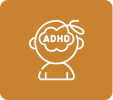
ADHD

DEPRESSION

AUTISM

LEARNING PROBLEMS

BEHAVIOURAL PROBLEMS

ADJUSTMENT PROBLEMS

STRESS
At Mind Weavers, our Child Psychologists are well-versed in the latest evidencebased interventions, providing personalized counseling to address the unique needs of each child.
Skills and Procedures Utilized
Clinical child psychology encompasses a wide range of procedures and skills addressing your child’s needs, including:
- Assessment (e.g., psychological, intellectual, cognitive, and behavioral evaluation).
- Intervention (e.g., psychotherapy and applied behavior analysis).
- Prevention program development (e.g., school readiness,bullying, addictions, obesity).
- Consultation with transdisciplinary team
- Evidence based Practices

Services Offered By Our Center
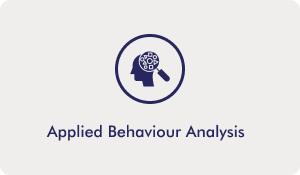


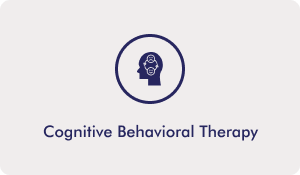
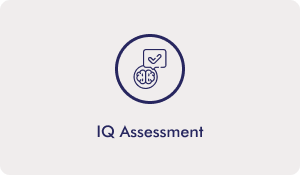
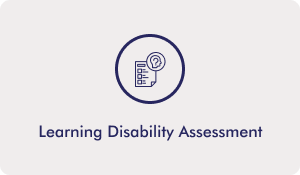
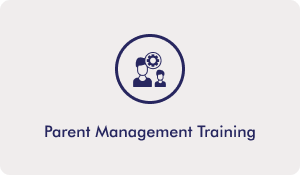

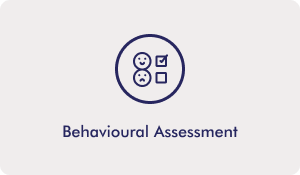
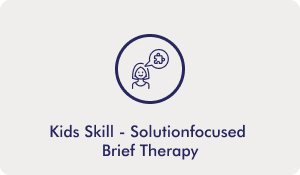
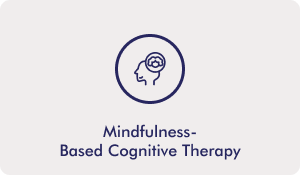
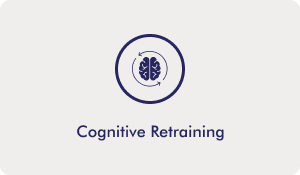
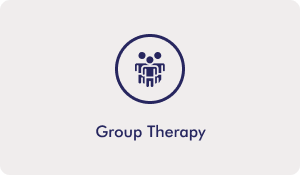

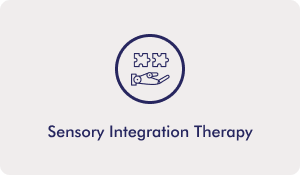
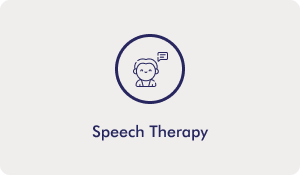
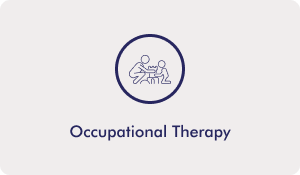
These services are administered by experienced and compassionate clinical psychologists and therapists that ensure your child receives the care and support they need to lead healthier and more fulfilling lives.
FAQs on PTSD
PTSD is a mental health condition triggered by experiencing or witnessing a traumatic event, causing significant distress and interfering with daily functioning.
PTSD can be caused by exposure to traumatic events such as combat, physical or sexual assault, serious accidents, natural disasters, terrorist attacks, childhood abuse, or the sudden loss of a loved one.
Symptoms of PTSD include intrusive memories, avoidance behaviors, negative changes in thinking and mood, and changes in physical and emotional reactions.
PTSD is diagnosed by a mental health professional through a comprehensive evaluation that includes discussing symptoms, medical history, and the traumatic event.
Yes, PTSD can be treated with a combination of psychotherapy, medications, support groups, and lifestyle changes. Treatment can help manage symptoms and improve quality of life.
Supporting someone with PTSD involves being patient and understanding, encouraging them to seek professional help, providing a listening ear, and avoiding pressure to talk about the trauma before they are ready.
Yes, children can develop PTSD after experiencing or witnessing a traumatic event. Symptoms in children may include behavioral changes, regression, nightmares, and increased clinginess.
Yes, mental health disorders such as anxiety and depression can significantly affect sleep patterns and contribute to sleep disorders.
The duration of PTSD varies; some people recover within a few months, while others may experience symptoms for much longer. Early treatment can improve outcomes.
If you think you have PTSD, seek help from a mental health professional for a thorough evaluation and appropriate treatment plan.
Help for PTSD can be found through:
– Mental health professionals, such as psychologists, psychiatrists, and counselors
– Support groups for PTSD
Mind Weavers for Adult Psychology -
Why We're Different?
✨Experience:
Mind Weavers stands out in the field of adult psychology for several reasons. Our team of licensed professionals brings a wealth of experience in dealing with adult psychological issues. We understand that adulthood is a time of significant transition and are committed to helping you navigate this period with empathy and expertise.
✨Understanding Issues from The Root:
We support a comprehensive strategy for mental health. Hence, it means we don’t just focus on your symptoms; we explore the root causes of your challenges. Therefore, by addressing these underlying issues, we aim to provide long-lasting solutions that improve your overall well-being.
✨Supportive Environment:
Another reason to choose Mind Weavers is our commitment to creating a supportive environment. We know that discussing mental health can be difficult, which is why we prioritize creating a safe, non-judgmental space. Our goal is to make you feel comfortable and heard, ensuring that you can openly discuss your concerns and challenges.
✨Flexible Treatment Plans:
Additionally, we offer flexible treatment options tailored to fit your lifestyle. So, whether you prefer in-person sessions or online consultations, we make it easy to access the help you need. Our flexible scheduling and various therapy modalities ensure that you can find the right fit for your needs.
Therefore, take the first step towards a healthier adulthood by choosing Mind Weavers. Your mental well-being deserves the best care, and we’re here to provide it.
Choosing Mind Weavers for
Your Child's Well-Being
At Mind Weavers, our aim is to have a happy, playful, and confident child.
We prioritize your child’s well-being and offer top-quality mental health services to support their growth and happiness. Our dedicated professionals including child psychologists, therapists, and counelors help children overcome challenges, develop crucial life skills, and thrive emotionally.
At Mind Weavers, you’re choosing more than specialized services; you’re selecting a caring and nurturing environment that fosters resilience, self-assurance, and a positive outlook.


